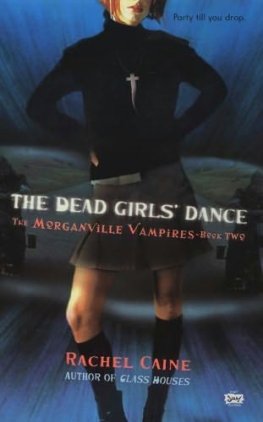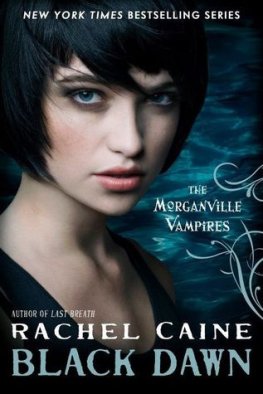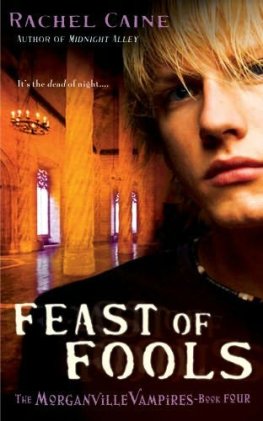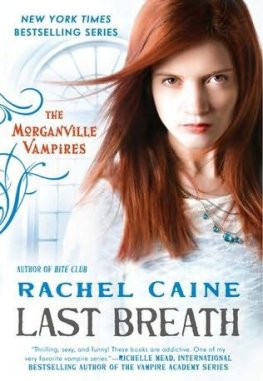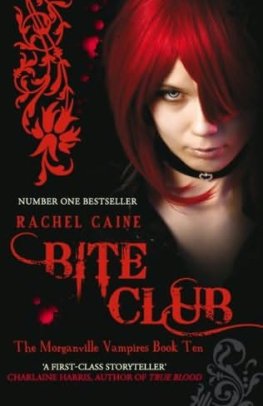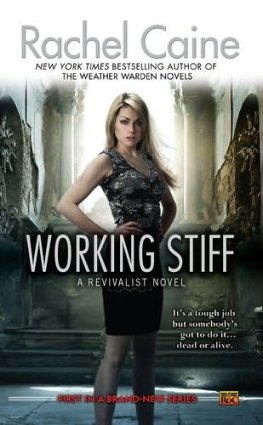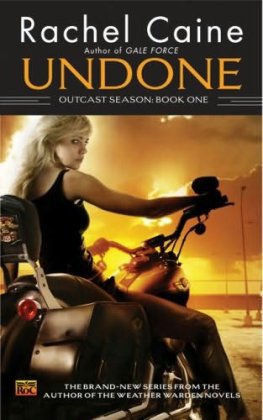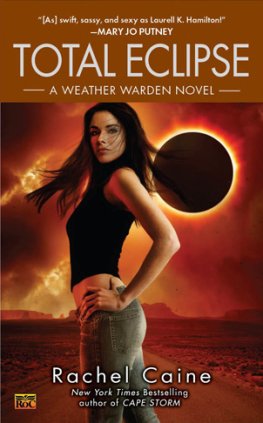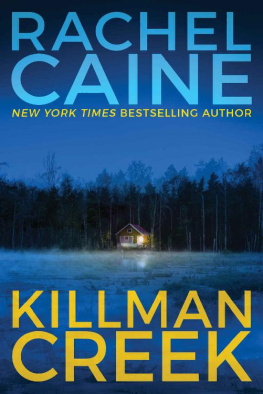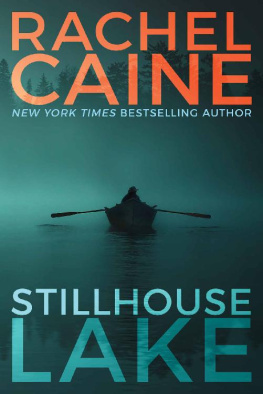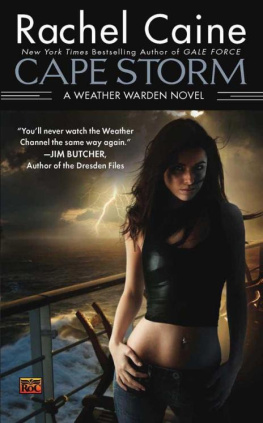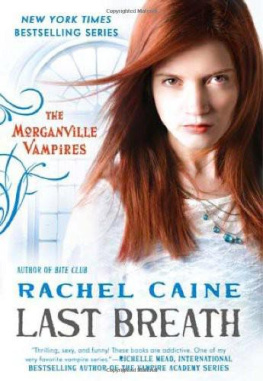Find out more about A New Dawn!
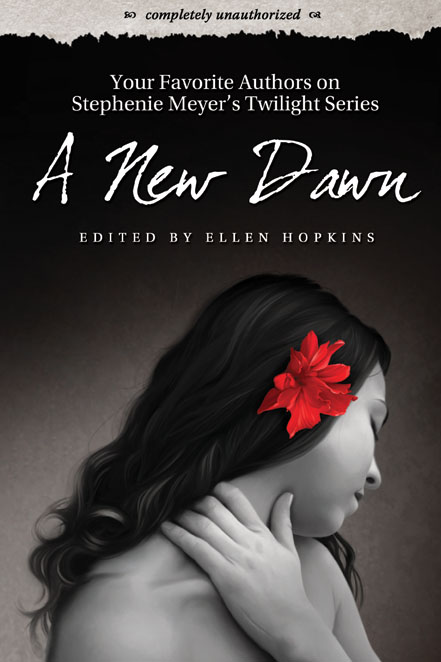
http://www.smartpopbooks.com/book/the-great-debate
The Great Debate
From A New Dawn: Your Favorite Authors on Stephanie Meyer's Twilight Series: Completely Unauthorized
Rachel Caine

An Imprint of BenBella Books, Inc.
Dallas, TX
THIS PUBLICATION IS UNOFFICIAL AND UNAUTHORIZED. IT HAS NOT BEEN PREPARED, APPROVED, AUTHORIZED, LICENSED, OR ENDORSED BY ANY ENTITY THAT CREATED OR PRODUCED THE WELL-KNOWN TWILIGHT BOOKS OR FILMS.
2009 by Rachel Caine
All rights reserved.

BenBella Books, Inc.
10300 N. Central Expressway, Suite 400
Dallas, TX 75231
www.benbellabooks.com
www.smartpopbooks.com
Send feedback to
Contents
The Great Debate
Rachel Caine
EBATE HOST: Welcome to the most popular reality show on highnumbered cable television: The Great Debate! We have two teams of very learned, articulate scholars with us to debate an exciting and timely topic: Resolved: Vampirethemed fiction represents thinly veiled sexuality and violence. Therefore, vampire fiction is not suitable for young adults, and in particular Stephenie Meyers Twilight, which has brought vampirethemed young adult fiction to the forefront, is not appropriate for young adult readers.
Boos and hisses from the audience.
DEBATE HOST: With us today, arguing that vampire fiction is unsuitable for young adults, are Professor Nelda HarlenPrice, head of the English Literature department at the Skokie Academy for the Arts, and Professor Hans Scheller of the University of Classical Education, author of the monograph On The Sexual Content and Repressive Nature of FolkloreBased Fictional Adaptations.
Reluctant applause from studio audience.
HARLENPRICE: Happy to be here.
SCHELLER: Ja.
DEBATE HOST: Advocating the right of young adults to read vampire fiction are two emerging experts in the field, Vampluvrgrl1111 of San Diego, California, whose recent blog, If You Dont Love Vampires, You Suck, And So Not in a Good Way, was so popular that it crashed the entire West Coast server network for approximately sixteen minutes.
VAMPLUVRGRL1111: And I brought down LiveJournal because more than 20,000 people tried to friend me at the same time. Oh, you can call me Mel.
DEBATE HOST: We also welcome Psychosister23, another prominent vampire expert on the Internet. Do you have a real name youd prefer we use during the debate?
PSYCHOSISTER23: That is my real name.
DEBATE HOST: [clears throat] Then let us commence. I call this debate to order. We previously flipped a coin to determine precedence, and by virtue of this, Professor HarlenPrice will first state the argument of the overall position.
MEL: Why cant we go first?
DEBATE HOST: Im sorry, but we do follow standard LincolnDouglas debating rules here on our show and
PSYCHOSISTER23: I dont know who Lincoln Douglas is, but Ill bet hes a hater. Dont make me flame you. Ive brought down fandoms, man. All I have to do is put a bulletin on MySpace, and you are gone.
MEL: Theyre going to bore people into changing channels before you even get to us.
DEBATE HOST: Well hold our total initial arguments to no more than two minutes. Is that acceptable?
Whispered conversation between Mel and Psychosister23.
PSYCHOSISTER23: Whatever.
HARLENPRICE: Its clear to everyone that vampirethemed literature contains adult concepts, in particular sexual content, as well as a significant propensity for gruesome violence. The vampire is one of the most enduring and resilient archetypes of modern literature, and this archetype reached its zenith with the introduction of the character of Dracula in Bram Stokers 1897 novel. Although based on folkloric concepts that attempted to find supernatural explanations for the entirely natural processes of decomposition after death as well as various illnesses, the vampire as a romantic figure clearly did not emerge until
MEL: Were not here to debate moldy old Dracula. And youre already at a minute.
HARLENPRICE: As I was saying, the vampire as a romantic figure clearly did not emerge until after the publication of Dracula. Although not a success initially, this novel became ingrained in public consciousness over time and, with the appearance of various film adaptations from Nosferatu to, of course, Dracula, the concept of vampire as a type of protagonist, if not romantic hero, became part of popular culture.
However, its important to examine the psychological and cultural underpinnings that led to this particular phenomenon. The vampire mythos was perfectly suited as a subconscious analog for the oppressive Victorian attitudes toward sexuality, especially the dangers of a womans sexuality being released. Where in older eras vampires simply killed their victims, from the time of Dracula onward the act of biting and sucking has been turned into a sexual release, and in fact vampires frequently indulge in actual sexual activity in addition to the psychosexual biting. Clearly, none of this is at all suitable for young readers, who are at a very critical stage of their own normal sexual development. I have no objection to vampire literature aimed at an adult audience, but young adults are simply not capable of selfanalysis, and thus cannot react in an ageappropriate way to the overwhelming stimuli
MEL: TIMES UP, BITCH. Also, you suck.
DEBATE HOST: Ah... unfortunately, Professor, well have to come back to you for the remainder of your initial statement. Im sure youll get to the subject of our debate in due course. Mel, I believe that you have the honor of making the initial argument for your position.
MEL: Damn straight. First of all, lets get right to the subject of this debate. Twilight is a completely awesome book. Bella: awesome. All her friends: awesome. The town: awesome.
PSYCHOSISTER23: Get to the point.
MEL: I am, keep your thong on already. [deep breath] Twilight is an awesome book because Edward Cullen is made of awesome, with awesome sauce and awesome sprinkle topping, and thats all there is to it.
Portions of the audience erupt into wild cheers; other portions seem deeply confused. Mel and Psychosister23 highfive.
MEL: Article one: Edward is hot.
PSYCHOSISTER23: You can stop there if you want. We win!
MEL: Article two: Edward is old, but he doesnt look like my grandfather. Which is so cool, that he can be old and beautiful.
PSYCHOSISTER23: Also, hot.
MEL: What she said. Article three: Edward tries to avoid Bella, and she thinks he hates her, but we all know deep down that its just because hes truly madly deeply in love. Which is so awesome, because we know theyre going to come together somehow.
PSYCHOSISTER23: I wanted him for myself.
MEL: Well, yeah, but lets face it, he was Bellas from the beginning. So, article four: Edward ends up saving her life, which was the last thing he wanted to do, because he is just that good. He cant help being a hero.
PSYCHOSISTER23: Doesnt count as much as his awesome hotness, though.
MEL: Hey, my statement. Go blog if you dont like it.
Next page


